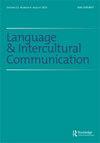文化认同与多元文化主义的法律哲学
IF 2.2
1区 文学
0 LANGUAGE & LINGUISTICS
引用次数: 0
摘要
这篇科学文章的目的是探讨多元文化主义的文化认同和法律哲学。学科领域扩展到不同的学科,如政治、哲学、法律和国际关系。谁有权决定谁属于某一特定族裔社区、谁不属于该族裔社区的问题是一个普遍存在的问题。在下文中,我们将关注多元文化生活的社会和政治层面。分析需要审查适当的法律框架。从科学的角度出发,运用了分析和描述的方法对现状进行了分析。本文章由计算机程序翻译,如有差异,请以英文原文为准。
Cultural identity and legal philosophy of multiculturalism
This scientific article objective is to investigate the cultural identity and legal philosophy of multiculturalism. The subject area extends into different disciplines such as politics, philosophy, law and international relations. The question of who has the right to determine who belongs to a particular ethnic community and who does not is a pervasive one. In the following we focus on the social and political dimensions of multicultural life. The analysis requires an examination of the appropriate legal framework. From the scientific methods we have used the analytical and descriptive method to analyse the current situation.
求助全文
通过发布文献求助,成功后即可免费获取论文全文。
去求助
来源期刊

Language and Intercultural Communication
Multiple-
CiteScore
3.00
自引率
47.40%
发文量
50
期刊介绍:
Language & Intercultural Communication promotes an interdisciplinary understanding of the interplay between language and intercultural communication. It therefore welcomes research into intercultural communication, particularly where it explores the importance of linguistic aspects; and research into language, especially the learning of foreign languages, where it explores the importance of intercultural perspectives. The journal is alert to the implications for education, especially higher education, and for language learning and teaching. It is also receptive to research on the frontiers between languages and cultures, and on the implications of linguistic and intercultural issues for the world of work.
 求助内容:
求助内容: 应助结果提醒方式:
应助结果提醒方式:


